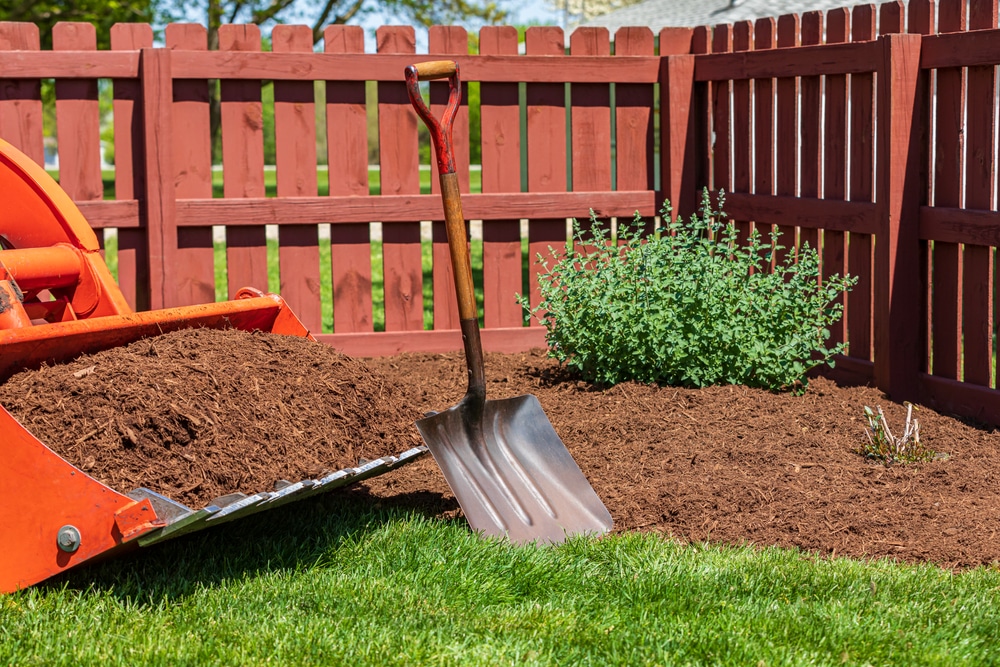There are several products that tend to serve as foundational elements for most landscapes, and one of the most common and well-known here is mulch. Mulch is a vital gardening and landscaping tool in several different ways, and knowing exactly the sorts of benefits and uses it offers can go a long way when you’re setting up or expanding a landscape design.
At BioGrass Sod Farms, we offer numerous varieties of high-quality mulch for varying client needs. Our mulch products come in several different types, colors and styles, and are put to use for a wide range of different purposes. Here’s a rundown on why mulch is so valuable in many landscapes, plus some of the most common and prudent uses that come with it.
What is Mulch?
For those who are extremely new to the world of landscaping and gardening, let’s define mulch. Mulch is a covering of organic or inorganic material that’s placed on top of soil or another surface to help insulate, add nutrients and protect plants from extreme temperatures and other environmental hazards.
There are several different types of mulch, including wood chips, shredded bark and other products. Wood chips are the most common type of mulch used in landscaping because they’re relatively inexpensive, easy to use and provide good insulation for plants.
Mulch and Moisture Retention
One of the key advantages of mulch is that it helps to retain moisture in the soil, which allows plants and grasses to grow healthier. Moisture retention is especially important during the summer months when temperatures are high and water evaporates quickly from the surface of soil.
Mulch acts as a barrier between the soil and air, reducing evaporation and helping maintain a consistent level of moisture in the soil. This helps to improve water efficiency and reduce the need for frequent watering or irrigation.
Weed Control
Another common use of mulch is weed control. Mulch covers the surface of soil, preventing sunlight from reaching any new weeds that may be trying to germinate. By blocking out the sun, mulch prevents weeds from growing and competing with existing plants.
Mulch also physically helps to prevent the growth of weeds by blocking out any new weed seeds that may have blown in or been carried in by animals. The thick layer of mulch is too hard for most weed seeds to penetrate, which helps keep the landscape free of invasive and unsightly plants.
Soil Temperature Moderation
In other cases, mulch can be used to help moderate soil temperature. This is especially useful in areas that experience extreme temperatures during different seasons. The mulch acts as a buffer between the soil and air, helping to keep the soil at an even temperature and providing insulation from sudden changes in weather.
Mulch also helps to protect plants from frost by trapping heat in the soil and keeping it from escaping. This helps to keep plants alive and healthy even during cold winter months.
Aesthetic Appeal
Mulch can also be used to improve the aesthetic appeal of a landscape. Mulch comes in several different colors, styles and types, which allows you to pick an option that best suits your design and style. In many cases, mulch can be used as an accent to highlight certain features of a landscape or even help create contrast between different elements.
For instance, you can use a dark colored mulch to make plants stand out or a light color to create subtle definition between different parts of the landscape.
Great Throughout the Year
Another key benefit of mulch is that it can be used year-round. In the summer, mulch helps to retain moisture and moderate soil temperatures. In the winter, it helps to provide insulation from cold temperatures and frost. Mulch also provides long-term protection for plants as it breaks down over time and slowly releases nutrients into the soil.
Compared to some other landscaping products or elements, which are more seasonal in nature, mulch can be used throughout the year to provide a range of benefits.
As you can see, mulch can serve several different purposes in a landscape design. From helping retain moisture and preventing weed growth, to providing insulation and aesthetic appeal – mulch is an invaluable part of any landscape. So, if you’re looking to set up or expand a landscape design, then mulch is an important element that should definitely be considered.
For more on this, or to learn about any of our mulch, grass, sod, soil or other landscape product services, speak to our team at BioGrass Sod Farms today.
